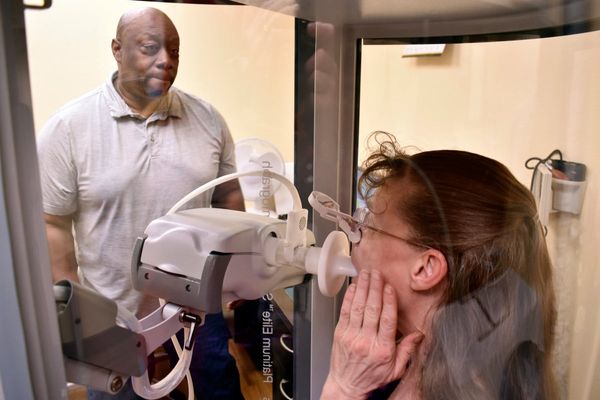
I love babies but, like WC Fields, I couldn’t eat a whole one. Nor, it turns out, could I watch an entire documentary about them without slumping sideways with boredom – especially not one as unceasingly pointless as last night’s offering, Babies: Their Wonderful World (BBC Two). Presented by developmental paediatrician Guddi Singh, an effervescent host continuing in the proud tradition of tamping down her own general expertise to allow the specialist talking heads to speak and to whom no blame should attach, it was an hour of … nothing, really.
More specifically, it was an hour that purported to investigate the question of how quickly we become an individual – are we born or made; what foundations are laid down for success and failure and when; and can we change what God and/or nature and/or accidents of birth hath wrought? Obviously you would be mad to expect a full answer to any of these questions, but you might have been within your fee-paying rights to expect something just a little more rigorous than what you got, which was a series of telegenic experiments so loosely conducted on such small sample numbers that any results were useless.
Six two-year-olds were confronted with a jack-in-the-box, a jumping-dog toy and an adult in a clown mask. Two reacted “excitably”, two were “cautious” and two remained “calm”, we were told. Despite the fact that at least one looked clearly “utterly baffled” (I’m with you, Logan), another “enormously contemptuous of proceedings” (I saw her point) and another what my grandmother used to call “happy daft” about everything. This in turn apparently confirms what psychologists have agreed for years – that there are three basic types of personality, suggesting a genetic control au fond. I would like a little more research money directed towards any two-year-old who remains calm when a stranger in a clown mask advances towards them, but then I am the cautious type.
Even more effort was expended even more uselessly when the data gathered by 2,000 UK families recording their toddlers’ early utterances demonstrated to no particular end that children in Wales and London say thank you least often and those in Northern Ireland and the north-east of England say “grandma” more often. Possibly, hazarded one of the experts, because they see their grandmas more often.

On it went. A sample of one proved that talking to a child more results in it talking more, too. The only genuinely arresting moment was during an experiment to see how early biases can form. We cleave to the familiar from a very early age and to demonstrate this, Singh explained, a researcher had based an experiment “around, in order to keep it as simple as possible for babies, the most obvious visual difference that exists between us” – race. Given the choice between a white play partner who had been shown to be unfair and an Asian play partner who had shown fairness, the five white toddlers under surveillance hesitated and then chose the former.
You can only imagine the conniptions among the commissioners at Broadcasting House (“We’re making toddlers look racist!” “Maybe toddlers are racist! We’ve a duty to inform!”). Presumably the hyperventilation caused explains the idiocy of not showing the experiment repeated with any children of colour. Assuming that the results were replicated, that might actually have driven home the point that the toddlers were going to the familiar rather than cleaving to a societal or systemic prejudice. If they didn’t replicate the results – well, that’s surely even more worth knowing. Still, the conclusion that was drawn – that the earlier and more diverse an environment children experience, the more familiar everything becomes – at least felt like a larger thought emanating.
Less convincing was the sight of three children who habitually used touchscreens handling crayons and blocks more dextrously than the tech-free trio being used as evidence that “touchscreens may not be all bad news”. Given that the internet is the biggest uncontrolled experiment ever carried out on humanity and we are already fracturing under its influence, this seems overly optimistic. But again, that may just be cautious me talking.
The takeaway was that everything in us starts earlier than you might think, everything is a bit nature, a bit nurture, and there should be a moratorium on programmes that are essentially a series of delightful Gifs of children (happy/sad/whatever Logan was) strung together masquerading as even the most remotely serious of documentaries. I am also the ungenerous type.







